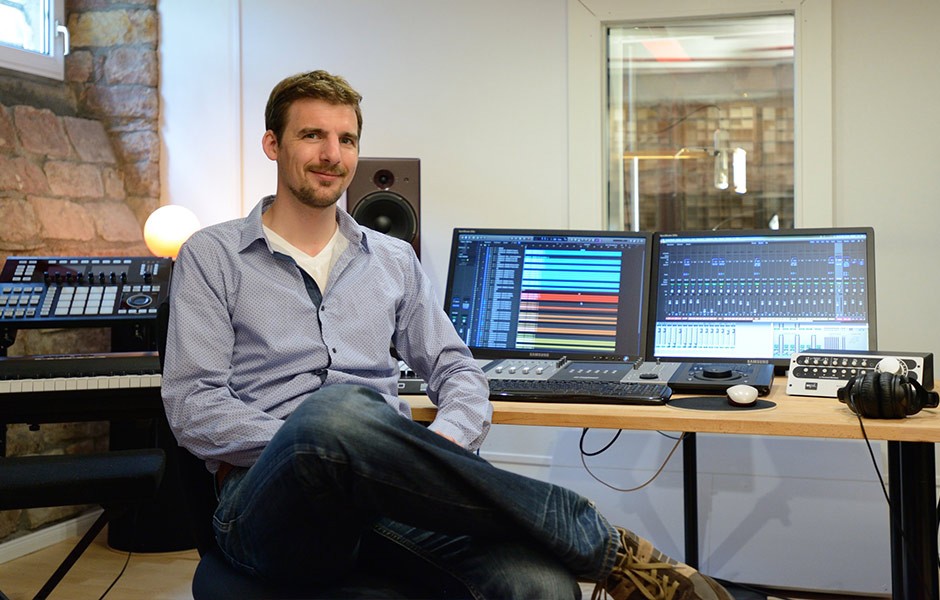Project Description
Can you tell us a little bit about yourself and what you do?
I work as a freelance recording/mixing engineer and producer. My production room is part of a historic recording house that nowadays hosts a team of 10 like-minded engineers and producers. We share two recording spaces, a 150sqm live-room and a 80sqm dry-room; a boutique vintage microphone collection; two grand pianos and several mobile recording units. We welcome classical musicians as well as jazz-, rock- and pop-musicians, and sometimes all at the same time. This makes our place quite unique and it has proven to be a successful concept in the landscape of modern music-production.
Rewind. I found my passion for audio quite early. At the age of 13 I began to use the soundblaster card of our family PC as a sampler and programmed my first electronic tunes. I also learned to play the trumpet and discovered my love for jazz and blues music. Later, I decided to study audio engineering with focus on acoustics and signal-processing. After my diploma, I was invited to work as a researcher at CERN in Geneva and develop an acoustic monitoring system for the largest machine mankind has build so far, the LHC. I have been teaching audio production classes at Webster University in Geneva in recent years.
As you can tell, my journey has been rich in variety and I can’t wait to see what the future will bring.
How and why did you choose PSI Audio monitors?
When I am in the market to buy new gear, I obviously look for the highest quality I can get for my budget. I also try to find out whether a company has a mindset that is compatible with my standards. When I passed by Yverdons-Les-Bains a couple of years ago, I spontaneously stopped at the Relec manufactory together with a friend. We spent two hours chatting with Alain Roux, founder of PSI Audio, and getting a tour through the whole manufactory. You can really feel that this company is driven by passion and a deep understanding of engineering. Everyone I met at the company was very open to share details about the manufacturing process and nothing was kept a mysterious secret. That’s a clear statement these guys have nothing to hide.
What are the main advantages of PSI Audio monitors?
I got a pair of A21Ms and from day one on I think that my mixes translate very well to other systems. The mid-range is not overemphasized as I have found in many comparable systems. The PSI’s never sound harsh and it is great to work on these speakers during a long day’s session. I find it particularly easy to detect phase problems in signals and the stereo-image is sorted and sharp. The low-end will not make you miss a subwoofer and you can crank up the volume insanely loud. It’s a great package!

